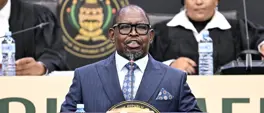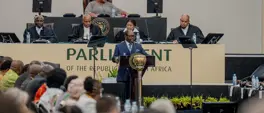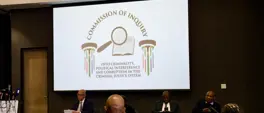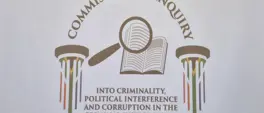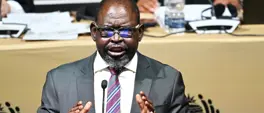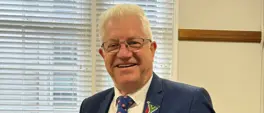FULL SPEECH | Statement by President Cyril Ramaphosa at the Opening of the G20 Leaders’ Summit
Eyewitness News
22 November 2025 | 9:23G20 Leader's Summit opening speech by President Cyril Ramaphosa.
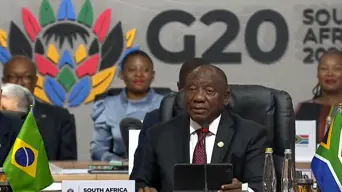
President Cyril Ramaphosa
Distinguished Heads of State and Government of G20 Members and Invited Guest Countries, Heads of Regional Economic Communities, Secretary-General of the United Nations, Mr António Guterres, Deputy President of the Republic of South Africa, Mr Paul Mashatile, Ministers and Deputy Ministers, Heads of International Organisations, Members of the diplomatic corps, Ladies and gentlemen, Distinguished Guests,
It is an honour and a privilege to welcome you all to the first G20 Leaders’ Summit to be held on African soil.
We gather here at the Cradle of Humankind to affirm our common humanity.
We gather here to affirm the value of partnership and cooperation, to finding common solutions to shared problems.
Shortly before the dawn of a democratic and free South Africa in 1994, the founding father of our democracy President, Nelson Mandela, said: “The time has come for South Africa to take up its rightful and responsible place in the community of nations.”
Today, as we open this G20 Leader’s Summit, South Africa is deeply aware of the profound responsibility that membership of the community of nations places upon us.
We also understand the responsibility of being entrusted with the Presidency of the G20.
In the execution of its task as the President of the G20, South Africa has throughout the past year – through its stewardship of some 130 meetings in various parts of South Africa, in other countries on the African continent and beyond our shores – sought to undertake this task with care and diligence.
We have sought at all times to preserve the integrity and stature of the G20, a premier forum of international economic cooperation.
The deliberations of the G20 have an impact on the lives of all members of the global community.
From its initial focus on broad macroeconomic issues, the G20 is now engaged on matters such as trade, sustainable development, health, education, science and technology, agriculture, energy, environment and climate change, among others.
As the G20 countries, we understand that progress on each and all of these issues is a necessary condition for strong, sustainable, balanced and inclusive growth.
In pursuit of, and in conformitywith, the founding mission of the G20, South Africa adopted the theme of ‘Solidarity, Equality and Sustainability’ for its G20 Presidency.
Through solidarity, we can create an inclusive future that advances the interests of people around the world who are at the greatest risk of being left behind.
This is important in an interconnected world, where the challenges faced by one nation affect all nations.
By promoting equality, we strive to ensure fair treatment and equal opportunities for all individuals and nations.
The disparities in wealth and development within and between countries is not only unjust and unsustainable. It is also one of the greatest impediments to sustainable growth.
It is essential that we break down divisions of economic status, gender, race and geography.
Sustainability involves meeting the needs of the present without compromising the ability of future generations to meet their own needs.
As a founding member of the G20, South Africa has sought to ensure that the developmentpriorities of the Global South and the African continent find expression firmly and permanently on the agenda of the G20.
This is important not only for the people of Africa and the Global South
It is vital for global stability and security, alleviating resource pressures, managing population movements and reducing the risk of conflict.
We seek stability because it attracts investment, improves planning and reduces the risk of global economic shocks.
And we prioritise inclusive and vibrant markets because they drive innovation and efficiency.
Thriving economies lift people out of poverty, encourage greater investment and trade, and generate the revenue needed to invest in public goods.
The threats facing humanity today – from escalating geopolitical tensions, global warming, pandemics, energy and food insecurity to inequality, unemployment, extreme poverty and armed conflict – jeopardise our collective future.
It is therefore essential thatwe make greater and faster progress towards the achievement of the United Nations Sustainable Development Goals by 2030.
We welcome the Sevilla Commitment adopted in June this year, which sets forth a renewed global framework for financing for development.
We must use this framework to catalyse development investments at scale in developing economy countries.
We must continue the reform of the international financial architecture, ensuring that institutions are strengthened, are more inclusive and are equipped to meet the challenges both of the present and the future.
At the beginning of our G20 Presidency, we identified four high-level priorities.
Firstly, we focused on action to strengthen disaster resilience and response.
While climate-induced natural disasters affect countries around the world, they have a particularly devastating impact on countries that cannot afford the costs of recovery and rebuilding.
We have agreed that it is essential for the global community, international financial nstitutions, development banks and the private sector, to scale up post-disaster reconstruction.
Secondly, we agreed that we must take action to ensure debt sustainability for low-income countries.
The G20 needs to renew its efforts to advance debt sustainability, with a particular emphasis on African countries.
Thirdly, we said we should mobilise finance for a just energy transition, increasing the quality and quantity of climate finance flows to developing economy countries.
Fourthly, we emphasised the importance of harnessing critical minerals for inclusive growth and sustainable development through the beneficiation of the minerals at the place of extraction.
In addition to these four priorities, we have prioritised issues of inclusive economic growth, industrialisation, inequality, employment, food security and artificial intelligence.
Much of the work of the past year will be presented and considered at this meeting.
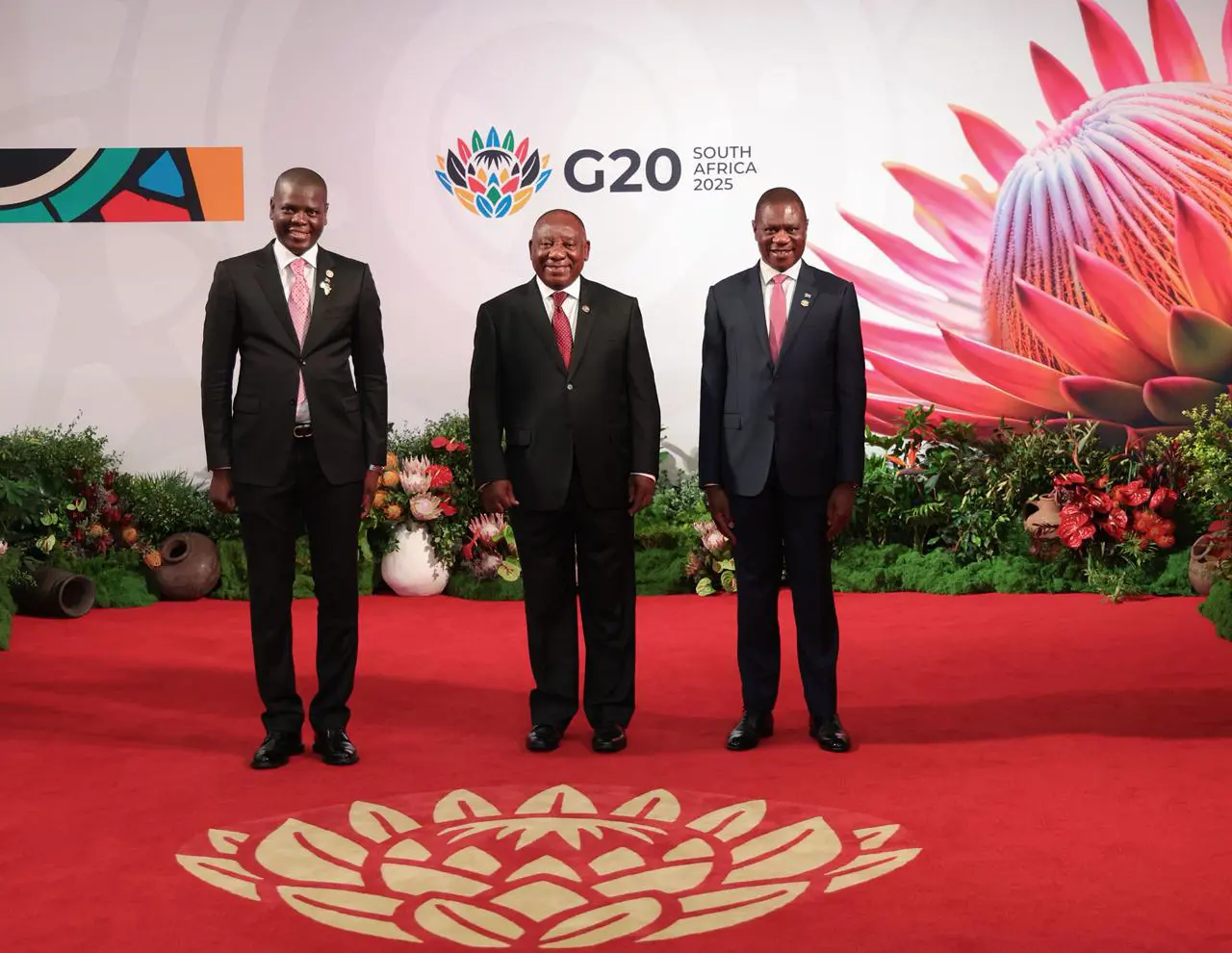
We commend in particular the G20@20 Review, which provides a detailed account of the path we have travelled as the G20.
It describes both our achievements and our challenges, and makes proposals on how we can organise ourselves to be more focused on our core mandate.
We welcome the work of the G20 Africa Expert Panel, led by South Africa’s former Minister of Finance Mr Trevor Manuel.
The panel argues that African efforts to accelerate productive investment require new global partnerships and strong multilateral cooperation. It calls on the G20 to support this effort by building a global policy framework that unlocks long-term finance at lower cost and investment at scale.
We are also grateful for the work of the G20 Extraordinary Committee of Independent Experts on Global Inequality, led by Professor Joseph Stiglitz.
The recommendations of the Extraordinary Committee provide a solid platform on which to launch a renewed global effort to tackle inequality.
As this is the first G20 Leaders’ Summit to be held in Africa, it carries the hopes, nd must reflect the aspirations, of the people of this continent and of the world.
We should not allow anything to diminish the value, the stature or the impact of the first African G20 Presidency.
This G20 Leaders’ Summit has a responsibility not to allow the integrity and the credibility of the G20 to be weakened.
We thank all the delegations that have worked together with us in good faith to produce a worthy G20 outcome document for this historic leaders’ meeting.
The G20 underscores the value and relevance of multilateralism.
It recognises that the challenges we all face can only be resolved through cooperation, collaboration and partnership.
The adoption of the declaration from the summit sends an important signal to the world that multilateralism can and does deliver.
It sends a message of hope and solidarity.
It tells the world that as the leaders of the G20, we will keep fast to our solemn pledge to leave no person, no community and no country behind.
I thank you
Get the whole picture 💡
Take a look at the topic timeline for all related articles.


